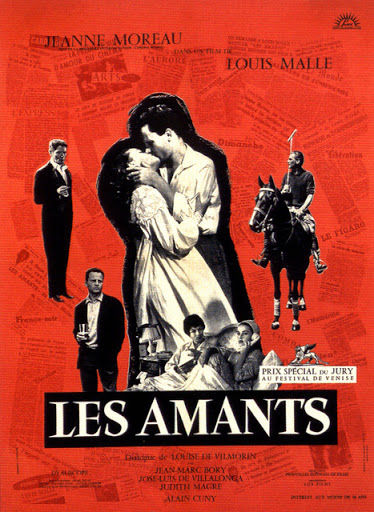"Le Plaisir", Dir: Max Ophüls, 1952
- Ravi Swami
- May 8, 2022
- 4 min read
I've reviewed a few films starring the French actor Jean Gabin who rose to stardom following several iconic roles and I was interested in checking out some more and Criterion Channel is hosting a range from his earliest roles through to later roles in films such as "Any Number Can Win".
The German director Max Ophüls' 1952 film "Le Plaisir" is a trilogy of short stories adapted from the writing of Guy de Maupassant and Gabin makes an appearance in the second film entitled "La Maison Tellier", and although I'm aware of De Maupassant's writing I hadn't actually read any - the 3 films appear to reflect a particular world view regarding the consequences of people's actions, or Karma, if you like.
The first film, "Le Masque", concerns a dance hall during the "Fin de siècle" and the arrival of a mysterious masked man who appears to exhibit the extraordinary energy levels of a young man on the dance floor until he suddenly collapses from exhaustion. A doctor on the premises is summoned and he is carried out to be examined, after the mask - bound tightly in place - is removed to reveal the face of an elderly man
The doctor accompanies the still unconscious man to his home on the top floor of a tenement where he is met by the mans' wife, who tells him that this is a regular occurrence.
The mans' wife relates the story of her husband, who as a young man was something of a ladies' man and who in old age yearned for the days of his youth to the extent that he would go out nightly wearing the mask of a young man to frequent the bustling dance halls where men would conjugate to dance and dally with young women.
The story ends as the doctor, a single man, leaves, pondering on this own reason for being at the dance hall and that of the man's long-suffering wife.
There are number of striking aspects to the adaptation, from the director's use of a free-moving camera in the dance hall segment to the astonishingly authentic sounding dialogue perhaps lifted directly from De Maupassant's story, that suggests that it could be updated without substantial alteration to make it seem more relevant to a 21st century audience.
The second short story, "La Maison Tellier", in which Jean Gabin makes an appearance, concerns a bordello in a coastal Normandy town that is the popular haunt of sailors and the respectable male citizens of the town, the latter being regulars indulged by the various women - all individual characters - who live and work there.
On one fateful day the bordello is closed for business which causes considerable consternation to the regular "punters", who debate the reasons for the closure before quarrelling and wandering off to their respective homes and patiently waiting wives and families.
One however decides to go to the bordello and finds a sign on the door saying that the women have temporarily left for the country to attend the confirmation of the niece of the brothel madame, much to his relief.
The plot then shifts to follow the women as they travel by train to the countryside and reveals them to be independent and loyal to their madame when a salesman peddling women's lingerie tries to flog them garters before they eject him at the next train stop.
They are met at their destination by the brother of the madame, "Joseph" (Gabin), who takes them by horse and cart to his home through the lush countryside and when they arrive they are shown their respective rooms in his farm house. Over the course of a few days during which they attend the confirmation of Joseph's daughter, he becomes infatuated with "Rosa" (Danielle Darrieux), one of the women from the bordello, but is kept in line by his sister, out of respect for his wife.
The women end their short holiday with a horse and cart ride by Joseph through the countryside, stopping off to gather flowers from a meadow before reaching the train station to catch their train home, waving off Joseph, who looks a little despondent.
Back at the bordello it is business as usual as the relieved and delighted punters resume their nightly assignations with their various favourites and this is where the story ends.
De Maupassant's story outlines the differences in morality between town and country folk without ever seeming judgemental and rather like some of the characters in "Adua and her Friends", the women in the bordello could have been innocent country girls like Josephs' daughter before being led astray after seeking opportunities in more populous towns and perhaps the women collectively choose to celebrate and preserve that innocence by attending the confirmation.
The concluding story of the trilogy is "Le Modèle" and is told in flashback. It concerns an artist who falls in love with his model but when they decide to marry, things gradually turn sour between them and they argue constantly and violently until the artist leaves her and moves in with his friend, who is the person telling the story in flashback.
Now living in a shared garret apartment which is starkly different to the spacious studio home that he shared with his wife during the early idyllic phase of their marriage he wonders if his wife and former model were responsible for his success as an artist.
His ex-wife decides to visit him in the garret and when he rejects her she threatens to throw herself out of a window, which she does and the story returns to the present, set on a beach like the start of the story, where it is revealed that the artist has relented and now cares for his wife who has been crippled after falling from a window.
"Le Plaisir" anticipates the moral tales series of Eric Rohmer and possibly influenced them in the sense that they were addressed to readers of the period that they were written regarding moral choices.
Filmed in a combination of location and studio settings, all three demonstrate Ophül's use of a free-moving camera to good effect along with a painterly eye that comes to the fore in the depictions of the lush French countryside even though the film is shot in monochrome, in the second film of the trilogy.
"Le Plaisir", Dir: Max Ophüls, 1952
Criterion Channel













Kommentare